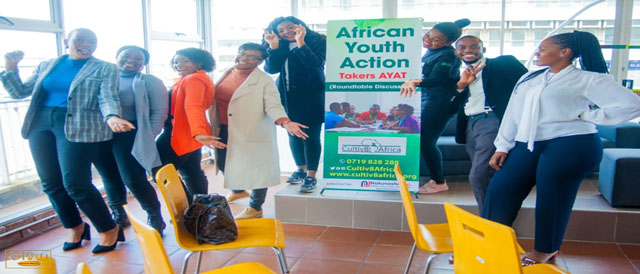
PROLONGED counter-intuitive harmful traditional or non-traditional practices underpinned by cultural norms, socially constructed attitudes and religious beliefs impede children’s potential and threaten the wellbeing of families and communities.
These practices have prohibitive and devastating consequences on the child’s cognitive development, health and educational potency. While harmful practices against children have remained pervasive in regions worldwide, subsequently, damage to children’s rights has been prevalent. Across regions, children continue to suffer from hurtful forms of abuse with similar patterns, which are approved within sectors of society.
Prevailing social and economic challenges in the developing world, coupled with the adverse impact of Covid-19, have exposed existing harmful practices since its inception, resulting in increased violation of children’s rights and vulnerabilities.
Moreover, there are numerous harmful acts that are widespread across African countries, such as female genital mutilation (FGM), forced marriage, honour killings, acid attacks, son preference, child prostitution, female infanticide, prenatal sex-selection and virginity testing, stoning, violent initiation rites, widowhood practices, accusations of witchcraft, incest and body modifications that are performed for beauty or marriage ability of girls and women.
In the recent past, African countries have made significant progress to lock in some of these harmful practices. According to the United Nations, the African continent gender gap in primary school education has effectively closed and in Sub-Saharan Africa, the number of girls not enrolled at primary school age decreased by 22% between 1990 and 2012.
The government of Zimbabwe has ratified many children’s rights instruments and in August 2020, it took an important step to uphold girls’ right to education by amending the Education Act to allow pregnant girls to attend classes and the Marriage Act of 2022, which criminalises child marriages.
The Constitutional Court (ConCourt) recently raised the age for sexual consent from 16 to 18, a move that further strengthens children’s rights instruments, protects under-aged girls from sexual exploitation, and addresses the religious organisations that propagate these practices.
On June 16, the commemoration of the Day of the African Child was celebrated under the theme “Elimination of Harmful Practices Affecting Children: Advances in Policy and Practice Since 2013”.
- Chamisa under fire over US$120K donation
- Mavhunga puts DeMbare into Chibuku quarterfinals
- Pension funds bet on Cabora Bassa oilfields
- Councils defy govt fire tender directive
Keep Reading
Numerous intervention programmes have been put in place signifying commitment by both government and civil society organisations to measure progress, develop interventions programmes aimed at eliminating harmful practices against children, and deploy resources.
Cultivat8 Africa, a youth-led, non-discriminatory organisation that promotes Africa’s empowerment and transformation by equipping youth with skills and knowledge, hosted a medium-sized roundtable focused on eliminating harmful practices against children.
With the participation of various stakeholders, including members of Miss Deaf Pride Zimbabwe Trust, Mwanasikana Wanhasi, Zimbabwe National Council for the Welfare of Children, Union in Christ and University of Zimbabwe students.
The discussion aimed at identifying harmful practices affecting children in Zimbabwe and to revitalise measures to protect and support affected children.
Emilda Vhiriri Mahachi, director of Cultivat8 Africa explained the purpose of the roundtable in detail.
“In addition to highlighting harmful practices affecting children, this platform serves to co-opt youth leaders into our pilot project, African Youth Action Takers (AYAT), which will focus on promoting young people into taking action,” she said.
Collective and inclusive discussions involving affected communities and capacity building of professionals working with children can be effective in achieving a unified, inclusive response to address harmful practices against children.
- Lovemore Nyawo development practitioner











